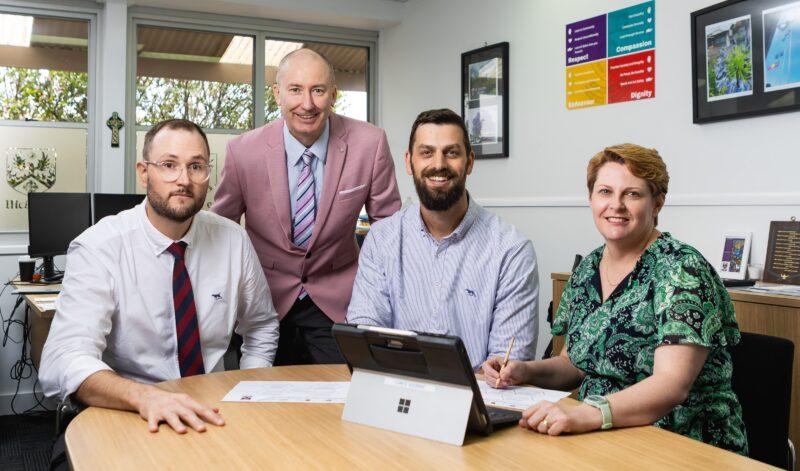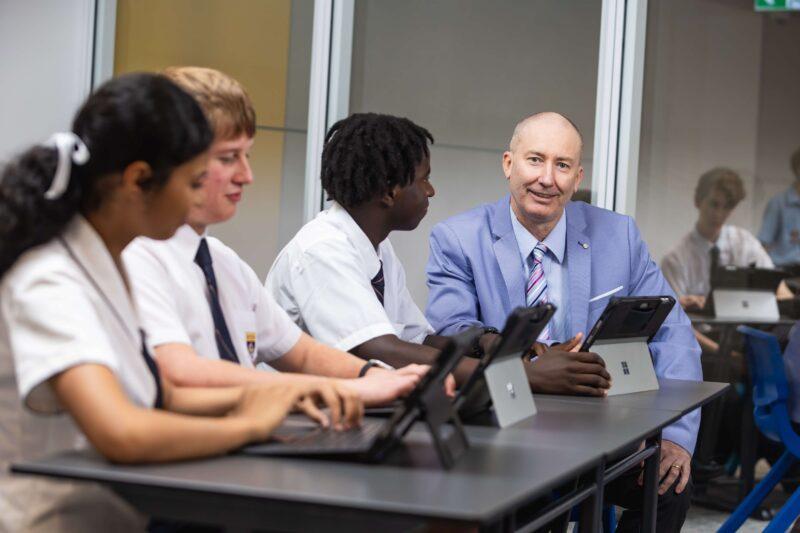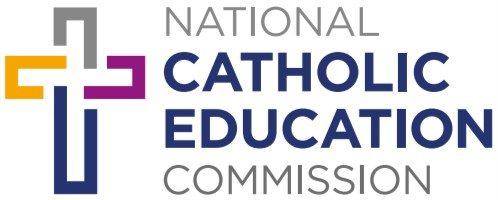With over 30 years in Catholic education, Andrew Fellenberg is a visionary leader dedicated to student-centred, values-driven learning. At St Joseph’s College Toowoomba, he has championed innovation through AI integration, literacy programs, and culturally responsive teaching. As Curriculum Middle Leader – Humanities and Commerce, Andrew fosters collaboration, supports early career teachers, and strengthens curriculum through cross-college partnerships. Grounded in Gospel values and the Edmund Rice tradition, he is respected for his integrity, compassion, and commitment to holistic education—both in the classroom and beyond.
What inspired you to become a teacher?
From a young age, I was drawn to the idea of making a meaningful difference in the lives of others. I saw teaching not just as a profession, but as a calling—a vocation that allows you to shape young minds, inspire curiosity, and help students realise their full potential. Over the years, this belief has only deepened. The classroom has become a space where I can foster critical thinking, build confidence, and nurture a love of learning. The opportunity to walk alongside students on their educational journey, both academically and personally, continues to be a profound privilege.


Can you share a moment in your career where you really felt you made a difference?
One of the most rewarding and impactful aspects of my career has been the organisation and leadership of six overseas educational tours to destinations such as Thailand, New Zealand, the United Kingdom, and France. These experiences were carefully designed to extend learning beyond the classroom walls—bringing Humanities and Commerce to life in real-world contexts.
Whether it was standing in solemn reflection at the trenches of the Western Front, engaging with local communities in Thailand, or exploring the economic and cultural hubs of Europe, these trips offered students a transformative experience. They developed global awareness, empathy, and a deeper appreciation for the interconnectedness of our world. The feedback from students and families has been overwhelmingly positive, with many describing these experiences as life-changing. For me, these moments reaffirm the power of experiential learning and the importance of creating opportunities that challenge, inspire, and broaden students’ horizons.
Is there a story from your time teaching that has inspired you or had a deep impact on you?
A particularly powerful moment came when I was invited to speak to our Year 11 student leaders about the life and legacy of Edmund Rice. Sharing my personal journey and connection to his values—justice, solidarity, compassion—was deeply moving. What made it even more special was witnessing how students embraced these values in their own leadership roles, modelling them in their interactions and decision-making.
It was a reminder that teaching is not just about delivering content; it’s about shaping character, building community, and inspiring students to lead with integrity and purpose. These are the moments that stay with you—the quiet affirmations that what we do matters.
How does your faith shape your teaching approach?
My faith is the foundation of my teaching and leadership. It informs my commitment to inclusivity, compassion, and service, and it guides the way I interact with students, staff, and the broader community. I strive to model Gospel values in all that I do—creating a classroom and department culture that is respectful, supportive, and grounded in dignity.
I draw inspiration from the example of Jesus, embracing a servant leadership model that is relational, person-centred, and focused on holistic growth. Whether mentoring early-career teachers, supporting students through challenges, or leading curriculum innovation, my faith provides a moral compass and a deep sense of purpose.
What’s the most rewarding part of teaching in a Catholic school?
Teaching in a Catholic school allows me to integrate faith with learning in a way that is both meaningful and transformative. It’s incredibly rewarding to be part of a community that values not only academic excellence but also spiritual and moral development. The emphasis on service, justice, and compassion aligns closely with my own values and provides a rich context for teaching and leadership.
Being able to support students in their faith journey, while also helping them grow intellectually and emotionally, is a unique and fulfilling aspect of Catholic education. It’s about educating the whole person—mind, heart, and spirit.
What do you think is the most valuable role Catholic education plays in today’s society?
In today’s fast-paced and often fragmented world, Catholic education plays a crucial role in forming young people who are not only well-educated but also deeply grounded in values. It offers a holistic approach to education—one that nurtures empathy, resilience, ethical thinking, and a commitment to the common good.
Catholic schools foster communities where faith, learning, and service are interwoven. They provide students with a strong moral foundation and a sense of belonging, while also preparing them to be thoughtful, engaged citizens who contribute positively to society. In this way, Catholic education continues to be a beacon of hope, compassion, and excellence in an ever-changing world.
